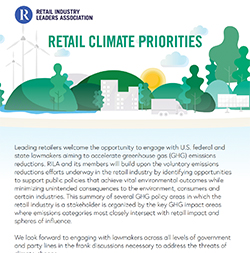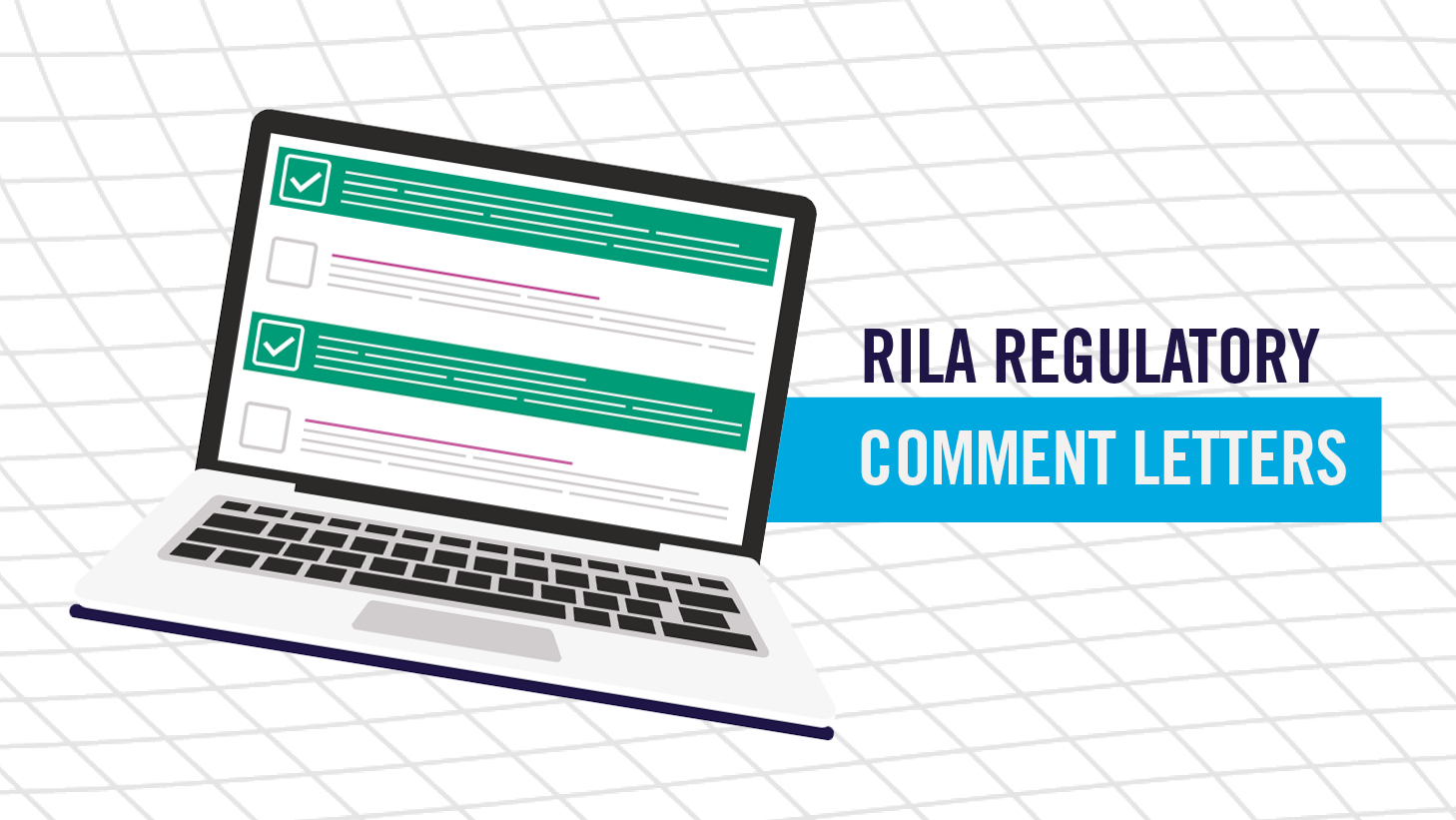- Home
- Focus Areas
- Sustainability / Environment
- Retail Climate Priorities
Climate Priorities
Climate change is a bigger threat than any one individual, company, industry, or government can address on its own. As the trade association of our country’s leading retail companies, RILA believes effective public policy has a critical role to play in protecting communities and economies globally from climate change’s most disruptive impacts. The United States should not shy away from its obligation to act.
We urge the Biden administration and Members of Congress to collaborate on bipartisan legislation that supports innovation, economic resiliency, and energy efficiency to help the United States prepare our economy and workforce to meet necessary emissions reductions.
Responding to the economic and moral imperatives of addressing climate change requires thoughtful and meaningful action. Leading retailers know the intricacies of navigating complex relationships and operational realities in the pursuit of sustainability. The retail industry is an ally in the fight against climate change and stands ready to partner with policymakers and provide constructive insights as we work towards achievable goals.

For a free copy of RILA's "Retail Climate Priorities," please complete the form.
Other Programs and Policy Drivers
Net Zero Emissions Targets
Achieving Net Zero emissions targets is contingent upon the policies implemented to achieve them, many of which are discussed in the Priorities. Importantly, these goals—especially if enforceable or binding—are likely to drive governments to adopt additional GHG control measures.
International Agreements
International climate agreements drive the development of domestic regulations designed to implement and achieve the corresponding international commitment. International agreements and cooperation are likely to expand in the coming years.
Agriculture & Forestry Sector Programs
Because many consumer products come from the agriculture and forestry—food, paper goods, tissue, lumber, etc.—the retail industry may experience indirect effects from related policy, and may also have opportunities to reduce emissions within supply chains.
Economy-wide carbon pricing measures
Latest on Climate and Sustainability

RILA Board of Directors Welcomes Five New Members and Names Phil Daniele as Board Chair
- By [Brian Dodge]
- 01/26/2026
Retailers Praise Progress on CCCA in Senate Agriculture Markup
- By [Austen Jensen]
- 01/23/2026

Supply Chain Signals: What We’re Watching in 2026
- By [Jess Dankert]
- 01/20/2026
Letter on Proposed NMED Regulations to Implement NM HB 212
- 01/13/2026

Retailers Urge Passage of Credit Card Competition Act
- By [Austen Jensen]
- 01/13/2026
RILA Statement on House Judiciary Mark-Up on CORCA
- By [Sarah Gilmore]
- 01/13/2026

Retailers Applaud House Passage of Trade Bills
- By [Sung Chang]
- 01/12/2026
Retail Litigation Center Adds 3 GCs to Board of Directors
- By [Monica Welt]
- 01/05/2026

RILA Comments on FCC TCPA Consent Revocation Rule
- 01/05/2026
Retailers urge Congress to address penny crisis in new year
- By [Austen Jensen]
- 12/22/2025

State of Trade 2025: How Retailers Can Ride Changing Tides
- By [Sung Chang]
- 12/22/2025
Retailers Object to Credit Card Settlement
- 12/17/2025

